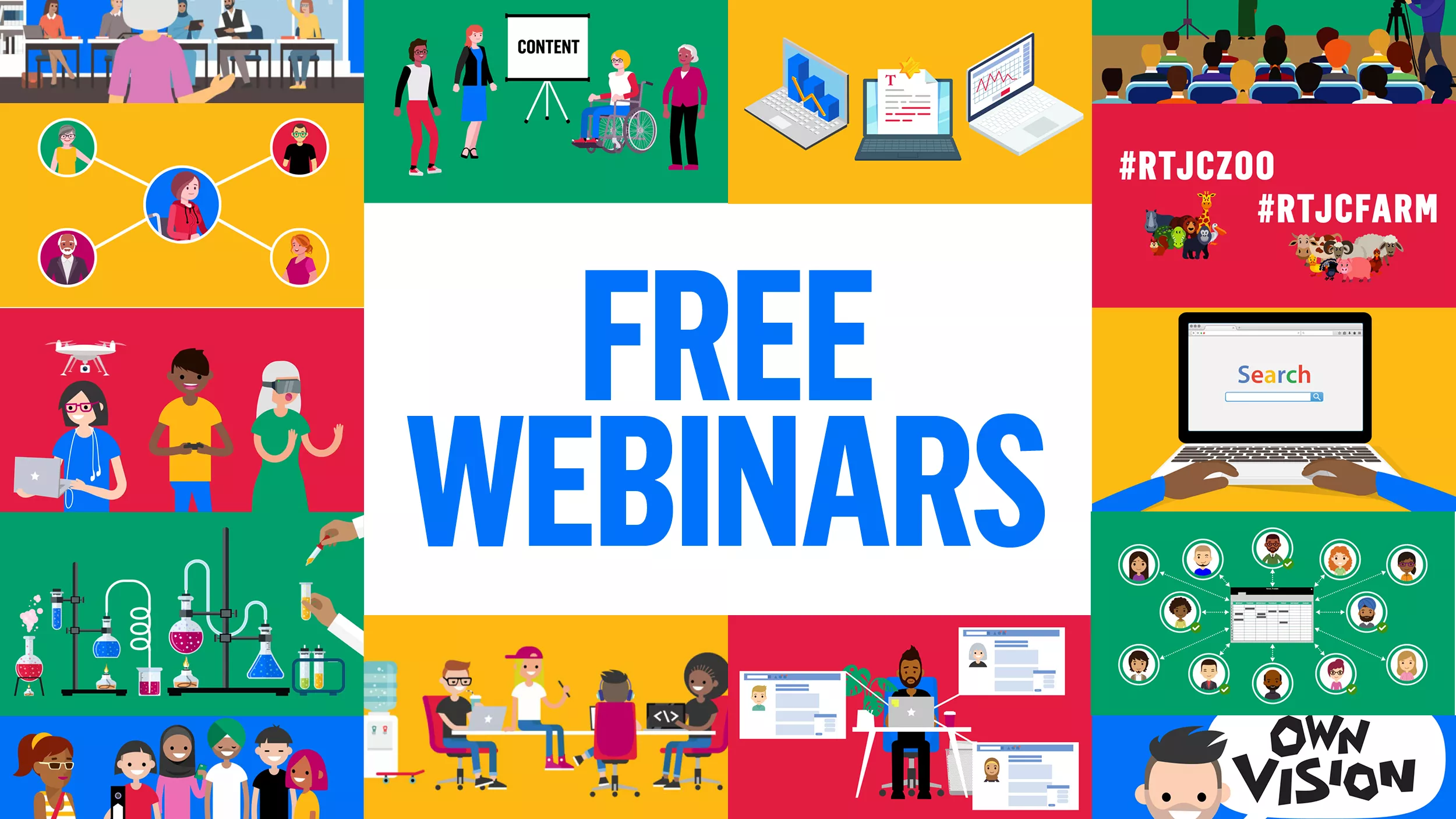Free webinars on digital accessibility and inclusion to create effective remote learning

As the ‘new normal’ starts to take shape with the easing of lockdown measures to restrict the spread of the pandemic, remote teaching for those students still based at home looks set to remain part of the picture for some time to come. Recent weeks have exposed the opportunities that lie in using technology to support learning. However, whilst online learning has offered a necessary lifeline in lockdown, the technology in and of itself does not ensure a quality learning experience and may, in fact, introduce barriers to learning for some. Understanding digital accessibility and inclusion can help to remove these barriers and create a better learning experience for all remote learners, not just those with special educational needs.
Here at the Education and Training Foundation (ETF) – the workforce development body for the Further Education (FE) and Training sector, funded by the UK government – we have been running a series of free online webinars to help practitioners understand different aspects of remote teaching, underpinned by core principles of digital accessibility and inclusion. Delivered by a team of experts, these have focused on how to ensure that the remote learning experience is as accessible and inclusive as possible for all types of learner. Every webinar has been recorded and is now available to book onto whenever is convenient for you.
Below is a selection of the free recordings currently available with a brief description and a link to book on:
|
Making the most of online learning Basic accessibility practices are vital to ensuring all students benefit from online materials. This session uses a series of free online training to help you enable as many learners as possible to benefit from online learning. Making webinars more inclusive Many practitioners are now using webinars for remote teaching. The tools and platforms you have available may put constraints on how inclusive your webinar can be, but this session explores some of the common issues and suggest ways to minimise their impact. Supporting learners with online reading skills There are multiple causes for literacy difficulties, but whatever the cause, students working in isolation via online learning are more vulnerable to discouragement and failure. This webinar explores how technology offers many ways of supporting learners with their online reading skills. Delivery through a virtual classroom How can you make virtual classrooms work in practice? This webinar will explore how tools that are commonly available in webinar software can be used to create different pedagogical approaches for online delivery. Adapting content quickly to deliver online This webinar shows how you can take a class presentation (PPT) and quickly adapt it for online use, including audio, video and the use of notes to help learners access all the extra information normally given in class. It also explores how to combine tools (Nearpod with Skype/Zoom or Teams) to make structured but interactive online sessions using a presentation as a starting point. How do we support learners suddenly faced with learning independently online? This webinar looks at tools that build a route through learning content and provide offline support to learners. The session uses Moodle to demonstrate features within a VLE to support online learning. How do we motivate and engage learners suddenly faced with learning independently online? This webinar looks at tools that can be used within a VLE (using Moodle as an example) to motive and engage learners by adding collaborative activities and gamification. |
Two more webinars have just been scheduled and are currently available for booking:
|
Supporting learners with writing skills 5 June, 12:30-13:30PM London Many teachers are now using virtual classrooms like Zoom, to deliver some or all of their classes. We will consider how we might need to adapt our practice within these sessions so that we are mindful of learners who may be very anxious about activities involving writing, with tips on digital technologies that can support the different stages involved in writing. Enhance your powers of critical reflection 10 June, 10:00-11:00AM London With online teaching and learning being a new environment for many teachers, it is important to begin to understand how effectively your practice is developing. In this session we explore how collaborative critical reflection with colleagues can help you identify successes and challenges, reflect on them and develop strategies for improvement. |
All the webinars highlight links to free bite-size training resources available on the our Enhance Digital Teaching Platform. This mobile-friendly training service includes 100 EdTech training modules mapped to the ETF’s national EdTech competency framework, the Digital Teaching Professional Framework (DTPF). The framework sets out definitions of digital teaching competency at three stages of development – Exploring, Adopting, Leading – and the associated training on the Enhance Digital Teaching Platform includes EdTech award badges at each of these three levels, with awards for completing modules, sharing reflections on learning and submitting resources. The platform offers substantial sections of training on digital accessibility and inclusion and also features a Guide to Training to Support Remote Working (PDF or fully accessible Word version) which picks out relevant modules on the platform to help with different aspects of remote teaching and learning.
The appetite for this kind of support is evident. The webinars have been fully booked within hours of going live on the booking system, and there has been a major surge in use of the training resources our platform. The so-called lockdown has shone a light on the importance of opening up access to learning through technology – the challenge is ensuring that there is equitable opportunity for all learners.
To find out more about the full range of the ETF’s support offer for remote working, visit: https://www.et-foundation.co.uk/supporting/courses/
During Covid-19, the ETF has increased our support for teachers and trainers across the sector who are working remotely to support their learners. The increased offer includes a free special issue of inTuition held on the Society for Education and Training (SET) website and access to previous editions. To keep updated on new support available, including the release of new CPD webinars and online modules, sign-up to the ETF’s newsletters and monitor the hashtag #ETFSupportsFE on social media.

National Head of EdTech and Digital Skills, The Education and Training Foundation
Vikki is French and has been living in England since 1987. She initially worked as a freelance illustrator and taught graphic design and illustration at South Thames College. In 1993 Vikki acquired her first Apple Mac, Wacom tablet, colour printer, Adobe suite and scanner, as she could foresee the impact such technology would have on the creative industries and education. From then on, she pursued her interest in the exploration and embedding of digital literacy and capability into her life and course delivery. In 2008, as a keen technology early adopter, Vikki decided to refocus her career on change management and digital capability. In 2018 she was recognised as one of the UK EdTech50 – an award to the people, products & projects shaping the education and technology sector across the UK.
You may also be interested in:
Upskilling Pathways: EPALE UK 2019 Video Interviews
Digital online learning – a model for the future? (blog)
Making a Webinar Jam Sandwich – online learning in a world of self-isolation (blog)




